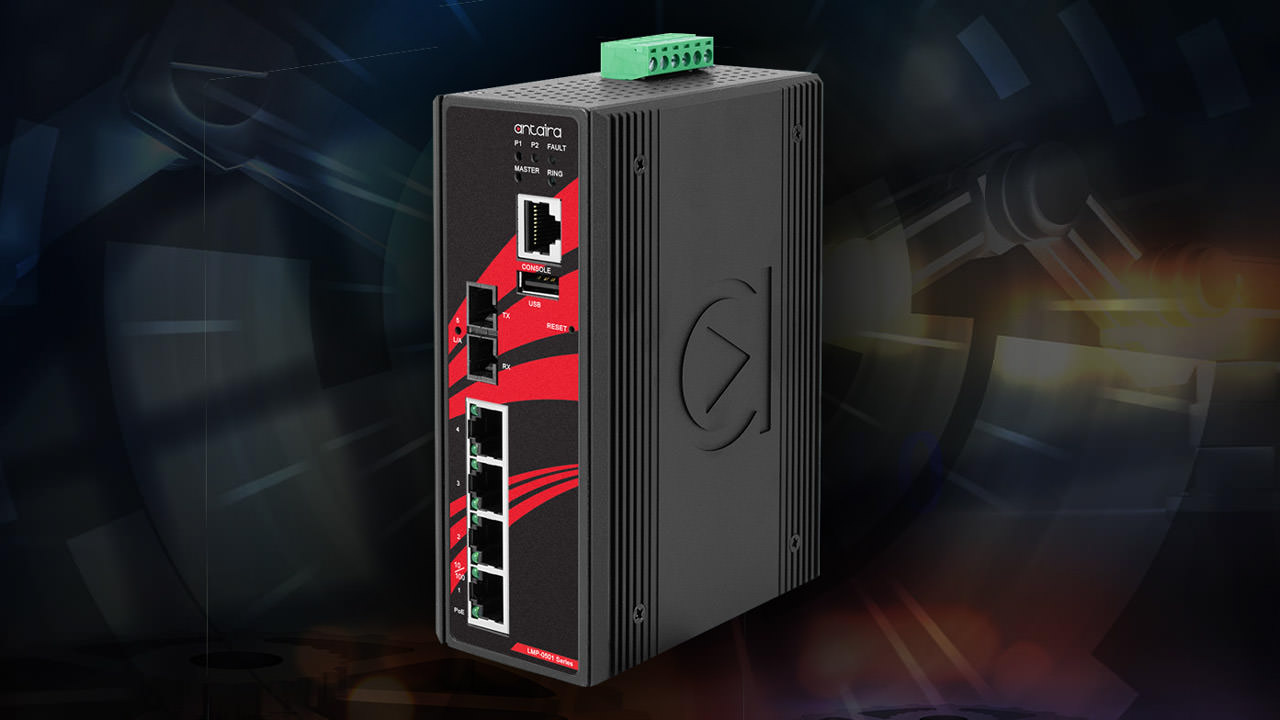TechnologyMarch 22, 2024
Industrial switch challenges in artificial intelligence deployments

AI is highly dependent on communications from sensors, intelligent machines neural networks and other devices with neural networks. A high-bandwidth, low-latency neural network built on fast, reliable and secure Ethernet switches can keep pace with the flow of data and ensure efficient management of traffic.
Industrial IoT applications are increasingly incorporating artificial intelligence (AI) into the managing, controlling, and monitoring of operations. When properly implemented, AI empowers plant management to focus on the larger picture and gain visibility into uncovering new ways to optimize workflows, enhance safety and sustainability, streamline supply chains, improve asset reliability, or make more efficient use of resources.
AI puts factories and plants in a continuous state of self-optimization, able to detect anomalies with advanced pattern recognition, conduct root-cause analysis, and take actions that minimize risk and maximize profits — all without human intervention.
Although AI is only in its early stages of adoption, it is already transforming industry and society as we know it.
With so many potential benefits of AI seemingly within reach, you are probably wondering how to implement AI in your organization. To begin with, you’ll need access to significant computing resources. Basic AI workloads can be handled by CPUs, yet multi-core GPUs are required for machine learning, deep learning, complex algorithms, and specific tasks involving large data sets. Massive amounts of storage are also vital to hold training data, software, and models.
However, the focus of this article is not on GPUs, CPUs, TPUs, or the intricacies of cloud storage. Instead, we are looking at another key component of AI: networking infrastructure, and specifically, the hurdles faced when deploying AI with industrial switches. AI is highly dependent on communications from sensors intelligent machines neural networks and other devices with neural networks. Only a high-bandwidth, low-latency neural network built on fast, reliable, and secure Ethernet switches can keep pace with the flow of data and ensure efficient management of the network traffic.
Below are five common industrial switch issues that may bottleneck an AI project and five effective strategies to overcome them.
Issue 1: Data Management and Synchronization
Industrial Ethernet switches handle vast amounts of raw data from diverse sources. Ensuring efficient data management and synchronization with machine learning and deep learning models is a significant challenge.
Solution: Develop efficient data handling techniques, including data preprocessing and compression, to minimize data overload on industrial switches and enable smooth AI data integration for machine learning.
Issue 2: Real-time Processing and Low Latency
Demand for real-time decision-making in industrial settings requires industrial switches to process data rapidly and exhibit minimal latency input data only.
Solution: Implement edge AI processing on industrial switches to reduce latency and achieve real-time machine learning, deep learning, and big data analysis without overburdening the central network infrastructure.
Issue 3: Security and Resilience
Integrating AI with industrial switches necessitates robust security measures to protect sensitive data and maintain system resilience against cyber threats.
Solution: Utilize secure communication protocols and encryption methods to safeguard data transmission between industrial switches and AI-enabled systems.
Issue 4: Interoperability and Protocol Compatibility
Industrial switches must be compatible with various other industrial network protocols and existing network infrastructures to facilitate seamless AI integration.
Solution: Deploy industrial switches with flexibility and adaptability to support multiple protocols, ensuring seamless compatibility with existing network frameworks.
Issue 5: Scalability and Redundancy
Achieving scalability and redundancy in AI-enabled industrial computer systems, AI tools, and computer vision systems is vital for ensuring uninterrupted and reliable operations, particularly in large-scale industrial environments.
Solution: Incorporate redundancy and failover mechanisms in AI-integrated industrial switches to further network redundancy to ensure system reliability and minimize disruptions in critical operations.
AI-Ready Industrial Switches
Purpose-built to deliver speed and reliability, Antaira’s industrial 10-Gigabit managed Ethernet switches check all the boxes for AI/ML applications. High port counts supporting both copper and fiber cables, combined with PoE up to 100W, enable the deployment of multiple edge devices while industrial-grade housings and wide temperature ranges protect connectivity in the most extreme environments.
Antaira switches are also available in DIN-rail mount models to fit inside tight control cabinets and in standard rack mount designs.
Henry Martel, Field Application Engineer, Antaira Technology


